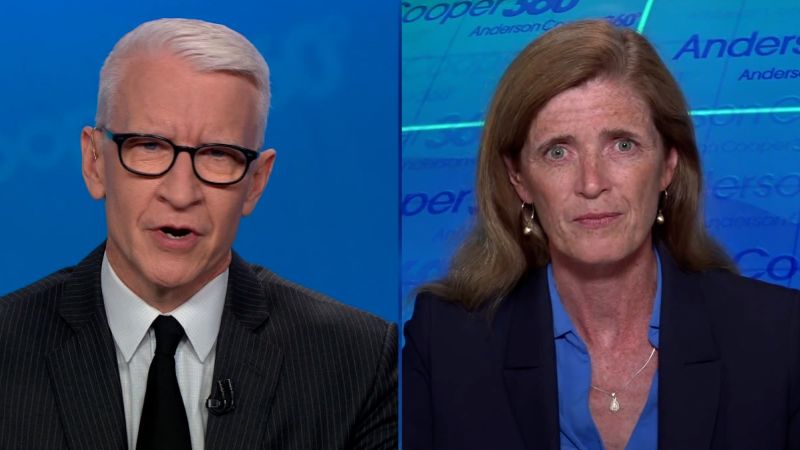Former USAID administrator Samantha Power has issued a stark warning about the potential consequences of significant funding cuts to the United States Agency for International Development (USAID). Speaking on the matter, Power emphasized that the “gutting” of the agency could lead to “devastating” outcomes, potentially resulting in millions of deaths worldwide.
The cuts in question target various life-saving programs that are integral to USAID’s global mission. These programs include initiatives aimed at combating infectious diseases, providing emergency food assistance, and supporting health care systems in some of the world’s most vulnerable regions. Power’s comments underscore the critical role that USAID plays in international development and humanitarian aid.
The Impact of Funding Cuts
The proposed reductions in USAID’s budget come at a time when global challenges such as pandemics, climate change, and political instability are exacerbating humanitarian needs. According to Power, the cuts would severely undermine the agency’s capacity to respond to crises, leaving millions without essential support.
Power, who served as USAID administrator from 2021 to 2023, highlighted the agency’s achievements in recent years, including its role in distributing COVID-19 vaccines and providing disaster relief. She argued that slashing the budget could reverse these gains and leave vulnerable populations at greater risk.
“The potential for millions of deaths is not just a hypothetical scenario; it’s a very real possibility if these cuts go through,” Power stated.
Historical Context and Comparisons
USAID has been a cornerstone of U.S. foreign aid since its establishment in 1961. Over the decades, the agency has been instrumental in addressing global health crises, such as the HIV/AIDS epidemic and the Ebola outbreak in West Africa. Past funding cuts have often led to setbacks in these efforts, highlighting the importance of sustained financial support.
Historically, reductions in foreign aid budgets have been met with criticism from both domestic and international stakeholders. Experts argue that such cuts not only compromise humanitarian efforts but also weaken the United States’ global leadership and influence.
Expert Opinions
Experts in international development and public health have echoed Power’s concerns. Dr. Jane Smith, a global health expert at the World Health Organization, emphasized the interconnected nature of global health systems.
“When one link in the chain is weakened, it affects the entire system. USAID’s programs are crucial for maintaining that chain,” Dr. Smith noted.
Meanwhile, economists warn that the long-term economic impact of such cuts could be profound, as they may lead to increased instability and migration, further straining global resources.
Implications and Future Outlook
The potential consequences of the funding cuts extend beyond immediate humanitarian concerns. Analysts suggest that a weakened USAID could lead to a power vacuum in international aid, with other countries or organizations stepping in to fill the gap. This shift could alter geopolitical dynamics and reduce the United States’ ability to influence global development agendas.
As debates over the budget continue, advocates for international aid are urging lawmakers to reconsider the proposed cuts. They argue that investing in foreign aid is not only a moral obligation but also a strategic necessity for promoting global stability and security.
Looking ahead, the future of USAID’s funding will likely be a contentious issue in the coming months. The outcome will have significant implications for millions of people around the world who rely on the agency’s support.
As Power’s warning reverberates through policy circles, the international community watches closely, aware that the stakes are incredibly high.
 Dominique Thorne Discusses Riri Williams’ Pivotal Choice in ‘Ironheart’ Finale
Dominique Thorne Discusses Riri Williams’ Pivotal Choice in ‘Ironheart’ Finale Iain Stirling Apologizes for Misjudged Joke on ‘Love Island USA’
Iain Stirling Apologizes for Misjudged Joke on ‘Love Island USA’ Tim McGraw’s Recovery Journey: From Surgery to Family Support in Copenhagen
Tim McGraw’s Recovery Journey: From Surgery to Family Support in Copenhagen Arena di Verona Cast Changes: Maria Jose Siri and Yusif Eyvazov Step In for ‘Aida’
Arena di Verona Cast Changes: Maria Jose Siri and Yusif Eyvazov Step In for ‘Aida’ BTS Ends Hiatus with New Album and World Tour in 2026
BTS Ends Hiatus with New Album and World Tour in 2026